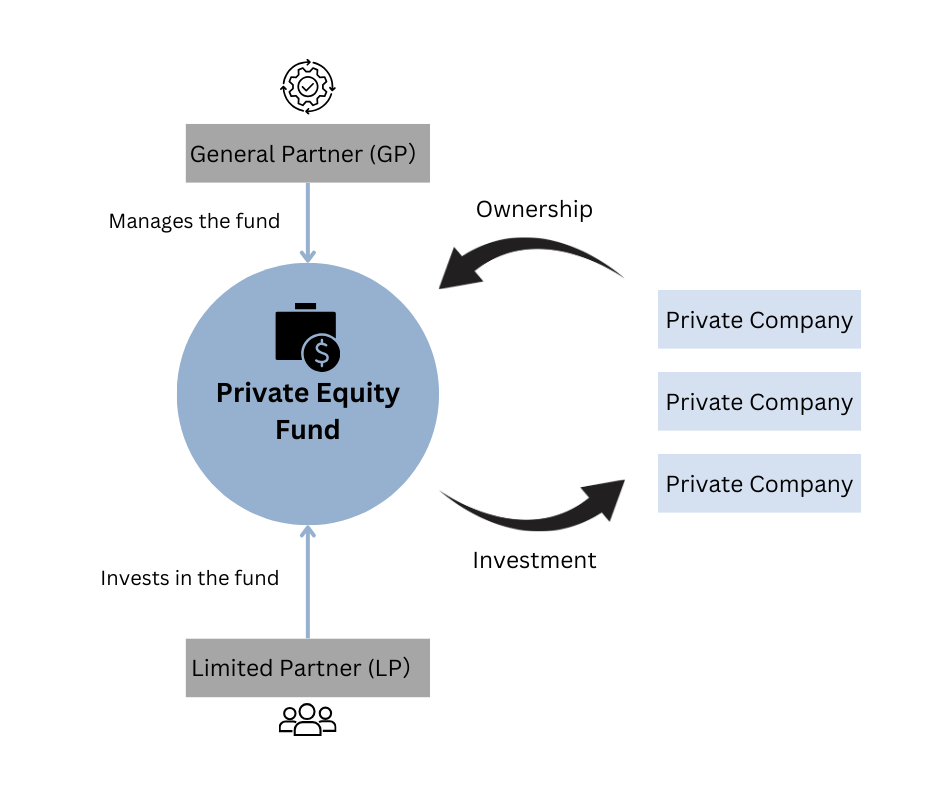Private Equity Part 1

What is Private Equity?
Private equity refers to a form of investment made into privately held companies or assets, (i.e. not listed on a stock exchange) in return for an ownership stake in the entity. It is often referred to as “PE,” for short.
What does a PE investment look like?
PE investments are typically made through private equity funds (“PE funds”). PE funds raise capital from investors (otherwise known as limited partners or LPs) and use it to purchase shares in privately held companies. Since the shares are not publicly traded, the PE fund negotiates the price and terms with the seller of the shares, the target company, intermediaries, etc. The PE fund then conducts due diligence (a close examination) on the target company before making an investment.
The invested companies are actively managed by a specialized team (called a general partner or GP) whose goal is to increase the value of the companies and then sell them for a profit after a few years. In other words, PE funds acquire companies, improve their operations, and sell them at a higher price to realize a return on their investment.
PE investments usually fall into three main categories:
- Buyouts - Investments in mature companies with an aim to maximize their value through restructuring financial structure, governance, or operations. Typically, the PE fund acquires a majority stake in the company. The majority stake and stable cash flow are collateralized, and debt is usually used to finance a portion of the investment, creating a leverage effect. Hence, private equity buyouts are commonly referred to as leveraged buyouts or LBOs.
- Growth Capital (or Growth Equity) - Investments in companies that are more mature than start-ups and are growing quickly. In growth capital investments, the PE fund will usually acquire less than half of a company's equity, so it does not have the leverage effect like a buyout. This type of private equity investment has become very common in Asia. PE funds invest in these companies to help them grow, commercialize, or enhance their organizations.
- Venture Capital - Investments in start-up companies. Unlike other private equity investments, in venture capital the portfolio company is never majority-owned by a single investor. In most cases, multiple venture capital firms invest in the same company. As the start-up company matures throughout its investment rounds (angel, seed, early-stage, late-stage), the investment becomes less risky, but the valuations simultaneously tend to increase.

